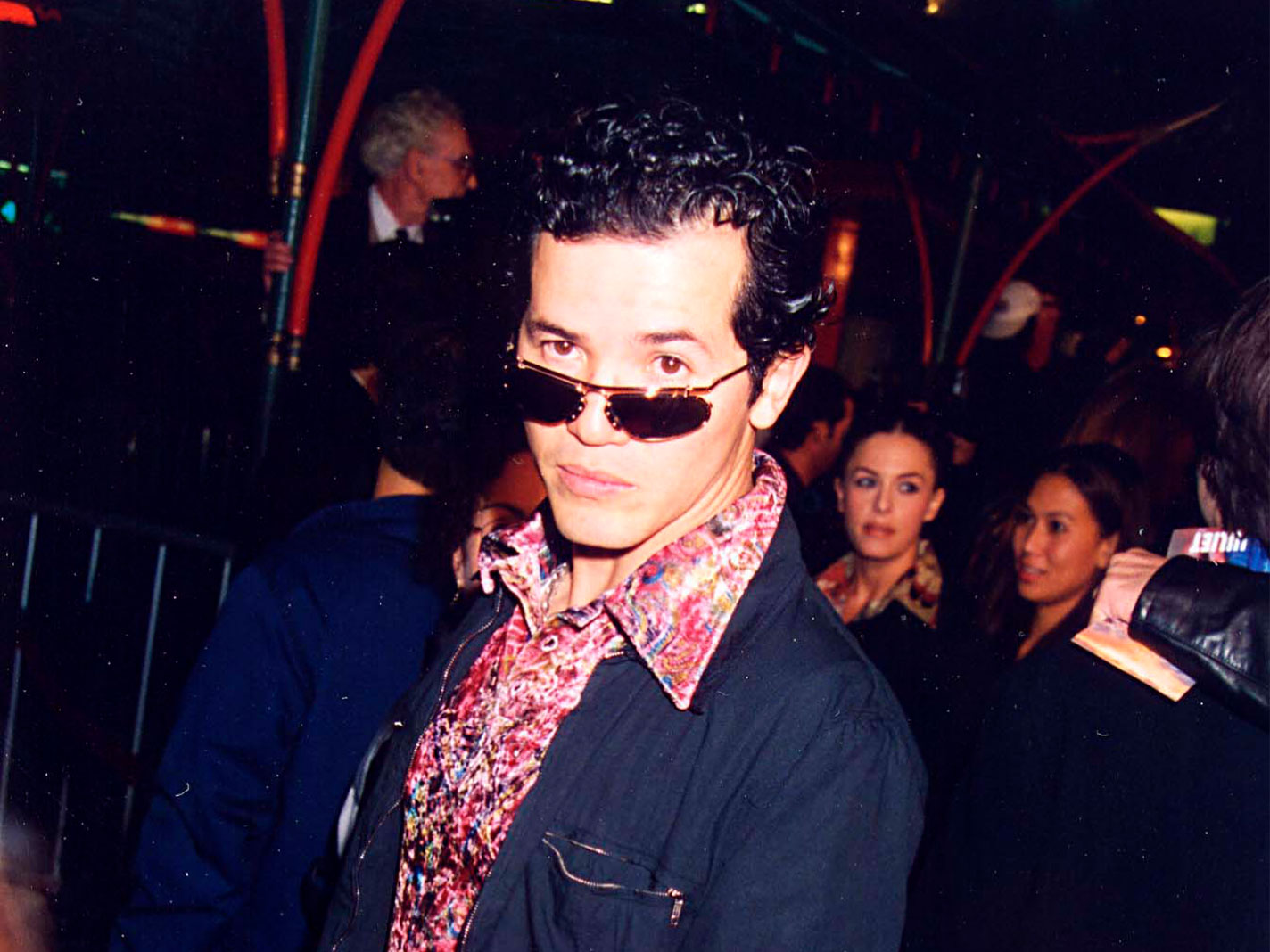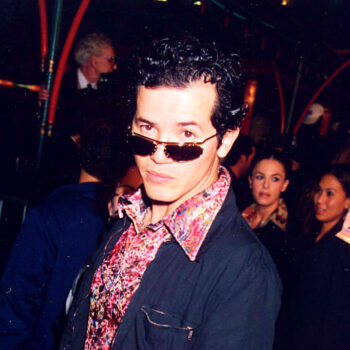Any high school education isn’t complete without a reading or reenactment of William Shakespeare’s Romeo and Juliet. If you were fortunate, you just got to watch the movie, particularly Baz Luhrmann‘s 1996 telling, William Shakespeare’s Romeo + Juliet. (I still assume the plus sign is meant to make it sound cooler and more rebellious in a very 1996 kind of way.) Audiences might have immediately gravitated towards its two leads, a pre-Titanic Leonardo DiCaprio and a post-My So-Called Life Claire Danes, but for us, it was all about John Leguizamo‘s Tybalt.
Described as the “Prince of Cats,” Tybalt is Juliet’s cousin. He detests Romeo completely, for reasons that essentially boil down to “their families hate each other.” He instigates much of the film’s violence and ultimately is one of many dead bodies the play racks up. In his first collaboration with the Australian Luhrmann–the two would team up again five years later for Moulin –Leguizamo’s Tybalt was florid and theatrical. And, as the only Latino in the cast, that’s a factor played up in Tybalt’s clothing and weaponry, making him stand out from the rather staid leads Romeo and Juliet. For many a millennial, this was the movie that told you who John Leguizamo was and that’s why–in honor of its 21st anniversary–we’re sharing our seven favorite GIFs to remind you why Tybalt is the best character in Romeo + Juliet.
1
He Knows How to Make an Impression
Leguizamo’s introduction in the film is one of several beautifully-shot moments. The first identifying characteristic we see of Tybalt are the silver heels of his shoes clinking on the sidewalk. As the animosity between his “boys” and the Montagues intensifies, he saunters over and lights a cigarette. (So many of Tybalt’s characteristics are Leguizamo’s effortless air of swagger.) Since this also marks Tybalt’s first lines, you’ll notice that Leguizamo is a bit more comfortable with the dialogue–”who among these heartless hinds”–than some of the other actors (looking at you, Leo). Leguizamo gives us our first taste of a character who’s impossible to ignore.
2
His Utter Unpredictability
Tybalt creates his own hell, antagonizing the Montagues to spur them to violence. During the opening, Benvolio (Dash Mihok) wants Tybalt to help him disperse everyone in the name of peace. The way Leguizamo says “peace” as a question is fantastic. This is a character with no interest in fixing, just destroying. “I hate the word / As I hate Hell / All Montagues, and thee.” Luhrmann loves quick cuts, and this dialogue is rapidly pierced by a small child playing with a toy gun. Tybalt turns around and points a real gun at him. Leguizamo is deft at playing comic and menace and this moment, wherein a small child is terrified by a real weapon, makes you realize the man isn’t one to be toyed with.
3
He Defines the Definition of "Swordsmanship"
Since Tybalt is such a showy character Leguizamo worked with choreographer John O’Connell, creating a flamenco-inspired “dance” with his guns. As the chaos in the gas station goes on around him, Leguizamo is throwing his guns in the air and posing to shoot. In another of Luhrmann’s cinematic techniques, the film actually speeds up as Tybalt whips off his jacket–revealing a Virgin Mary-inspired shirt–to load the gun that will drive his point, pun intended, home.
4
He's Not Afraid to Speak His Mind
The Capulets’ party is the one time we get to see Tybalt let loose. Leguizamo rocks some devil horns, and gets a very brief moment of dance as Romeo trips out on ecstasy. Once Tybalt realizes his mortal enemy is in the house, however, he jumps right back into murder mode, refusing to “endure” him. The only one powerful enough to stop Tybalt is the main Capulet, Fulgencio (played by Paul Sorvino). Watch Leguizamo’s face after he takes a slap to it. It’s filled with rage, but he’s going to back down.
5
He Spits Out Shakespeare's Harshest Digs
Shakespeare enjoyed giving his villains some of the best insults, and Tybalt is no exception. On a hot day in Verona Beach, Tybalt arrives looking for Romeo but finds his best friend, Mercutio (Harold Perrineau), instead. The two verbally spar, with Leguizamo spitting out “Thou art consortest with Romeo?” It’s a mocking accusation that Mercutio might be in love with his friend. Later, when Romeo finally arrives, Tybalt declares him “a villain.” We’ve already said Leguizamo knows how to read his Shakespeare, but here he gets to punctuate them with some barbs.
6
He Sets the Third Act in Motion
Tybalt’s brawl with Romeo is expertly set up with some lovely cinematography–the sunlight through Sycamore Grove never ceases to dazzle–and aided by the fact a real hurricane was actually preparing to come through. Leguizamo lets loose here, his screams of “turn and draw” being both aggressive and pleading. When Mercutio is killed at Tybalt’s hand, the actor’s face registers so much confusion and pain, as if he’s seriously contemplating the repercussions of his actions.
7
You're Sad When He Inevitably Dies
This is a Shakespeare play–Romeo and Juliet of all things–so it’s not a spoiler to say nearly everyone dies, including Leguizamo’s Tybalt. Since the real “woe” is meant to be found in the death of our lovers, Tybalt’s death is a taste anticlimactic. Gone is the theatrical gun wielding and in its place is sad, inevitable violence. This is another moment where Leguizamo’s facial reactions are priceless. He’s angered, then sad, then seemingly resigned to his fate. We all loved Leo, but you probably shed a tear for the death of the Prince of Cats, too.




